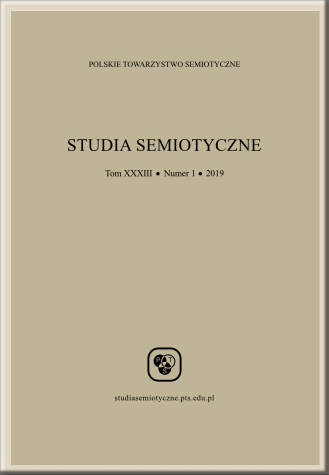Abstract
DOI: http://doi.org/10.26333/sts.xxxiii1.02
A possible way out to Kripke’s Puzzle About Belief could start from the rejection of the notion of epistemic transparency. Epistemic transparency seems, indeed, irremediably incompatible with an externalist conception of mental content. However, Brandom’s inferentialism could be considered a version of externalism that allows, at least in some cases, to save the principle of transparency. Appealing to a normative account of the content of our beliefs, from the inferentialist’s standpoint, it is possible to state that a content is transparent when name-components of that content are a priori associated with some application conditions and, at the same time, reflection alone provides an a priori access to those application conditions, with no need of any empirical investigation. Nevertheless, such requirements are only met in trivial cases. The aim of this paper is to argue that some application conditions of that sort, albeit trivial, can be ontologically ampliative. As a result, the related contents can be regarded as transparent in a substantial and rich way.
References
Beall, Jc., Restall, G. (2013). Logical Consequence. The Stanford Encyclopedia of Philosophy. Retrieved from: https://plato.stanford.edu/entries/logical-consequence/
Boghossian, P. A. (1994). The Transparency of Mental Content. Philosophical Perspectives, 8, 33–50.
Boghossian, P. A. (2011). The Transparency of Mental Content Revisited. Philosophical Studies, 155(3), 457–465.
Brandom, R. (2008). Between Saying and Doing: Towards an Analytic Pragmatism. Oxford: Oxford University Press.
Brandom, R. (2000). Articulating Reasons: An Introduction to Inferentialism. Cambridge, MA: Harvard University Press.
Brandom, R. (1994). Making It Explicit. Reasoning, Representing, and Discursive Commitment. Cambridge, MA: Harvard University Press.
Chalmers, D. (2009). Ontological Anti-Realism. In: D. Chalmers, R. Wasserman, D. Manley, (Eds.), Metametaphysics: New Essays on the Foundations of Ontology (pp. 77–129). Oxford: Oxford University Press.
Contessa, G. (2016). It Ain’t Easy: Fictionalism, Deflationism, and Easy Arguments in Ontology. Mind, 125(499), 763–73.
Diaz-Leon, E. (2014). Do a Posteriori Physicalists Get Our Phenomenal Concepts Wrong? Ratio, 27(1), 1–16.
Evans, G. (1982). The Varieties of Reference. Oxford: Clarendon Press.
Field, H. (2000). A Priority as an Evaluative Notion. In: P. A. Boghossian, C. Peacocke (Eds.), New Essays on the a Priori (pp. 117–149). Oxford: Oxford University Press.
Harrison, B. (1982). Description and Identification. Mind, 91(363), 321–338.
Kallestrup, J. (2003). Paradoxes About Belief. Australasian Journal of Philosophy, 81(1), 107–117.
Kripke, S. (1979). A Puzzle About Belief. In: N. Salmon, S. Soames (Eds.), Propositions and Attitudes (pp. 102–148). New York: Oxford University Press.
Levine, J. (2001). Purple Haze: The Puzzle of Consciousness. Oxford: Oxford University Press.
Lewis, D. K. (1974). Radical Interpretation. In: D. Lewis (Ed.), Philosophical Papers (Vol. I, pp. 108–121). New York: Oxford University Press.
Lewis, D. K. (1981). What Puzzling Pierre Does Not Believe. In D. Lewis, Papers in Metaphysics and Epistemology (pp. 416–417). Cambridge: Cambridge University Press.
Price, H. (2011). Naturalism without Mirrors. Oxford: Oxford University Press.
Recanati, F. (2018). From Meaning to Content: Issues in Meta-Semantics. In: D. Ball, B. Rabern (Eds.), The Science of Meaning: Essays on the Metatheory of Natural Language Semantics (pp. 113—137). Oxford: Oxford University Press.
Ripley, D. (2013). Paradox and Failures of Cut. Australasian Journal of Philosophy, 91(1), 139–64.
Russell, B. (1912). The Problem of Philosophy. Oxford: Oxford University Press.
Salmon, N. (1986). Frege’s Puzzle. Cambridge: MIT Press.
Schiffer, S. (2003). The Things We Mean. Oxford: Oxford University Press.
Thomasson, A. L. (2017). Why We Should Still Take It Easy. Mind, 126(503), 769–779.
Thomasson, A. L. (2015). Ontology Made Easy. Oxford: Oxford University Press.
Thomasson, A. L. (2001). Ontological Minimalism. American Philosophical Quarterly, 38(4), 319–31.
van Inwagen, P. (1990). Material Beings. Ithaca: Cornell University Press.


